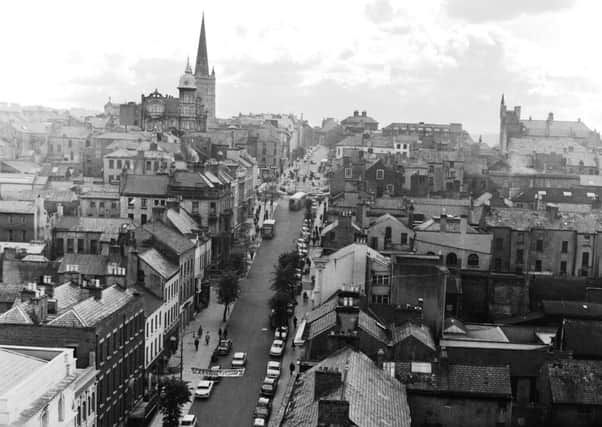'˜Protestants moved because they were scared, not because of housing'


Jonathan Burgess, whose family was amongst thousands who decided to flee the west bank of the River Foyle in pursuit of safety during the Troubles, was speaking after the publication of a report into the reasons for the Protestant ‘exodus’ between 1969 and 1980.
Between 1971 and 1981, the Protestant population on the west bank fell from 8,459 to just 2,874, according to census figures.
Advertisement
Hide AdAdvertisement
Hide AdThe report, commissioned by the Pat Finucane Centre, found that while “direct intimidation” did happen and had a “major” impact on those subjected to it, it was not the “principal cause” of the migration.
Instead, the report points to factors such as housing, poor economic development, a failure of political leadership and a diminished “sense of belonging” as having contributed to the migration, alongside what it called “safety and security” issues.
Mr Burgess, whose 2010 play ‘The Exodus’ gives a fictionalised account of the migration and is actually referenced in the report, said there has been an “emotional” response amongst Londonderry Protestants to the publication.
“It seems to be seeking to objectify something which has a very visceral and emotional response for the Protestant community in this town,” he said.
Advertisement
Hide AdAdvertisement
Hide Ad“People were certainly not moving for houses. They weren’t moving for jobs. They were moving because they were scared. The people who moved know why they moved.”
He continued: “My father moved us when I was two weeks old. We lived at the top of the Abercorn Road (on the west bank) and my father moved us to Bonds Street (on the east bank), but when there was a bomb that went off outside our door in the Waterside my father decided to move us farther on out.
“The core of it for me is the narrative, the stories and the narrative of the people here from my community in the city. If people are trying to negate that or neutralise it, to give a very neutral, objective response to it and sanitise it, I think that is very disingenuous.”
Mr Burgess added: “And it could even be quite dangerous because it could be quite harmful to community relations.”
Advertisement
Hide AdAdvertisement
Hide AdThe DUP MP Gregory Campbell, meanwhile, pointed to “documentaries, reports and books” which he said give a better account of the “intimidation the Protestant community faced” during the period referenced in the report.
In particular, he pointed to two programmes broadcast by the BBC entitled ‘The River Crossing’ in the 1980s, and another more recent documentary by John Peto also entitled ‘The Exodus’.
“This is the first report that has attempted to minimise the murder, the attempted murder, the attacks and the intimidation,” Mr Campbell said.
“I had immediate family who lived on the edge of the Bogside who moved in with us (in the Waterside) in August ‘69. I was only a child at the time. They came to live with us because they were intimidated. They had said neighbours of theirs had to move out as well.”
He added: “People didn’t move because of housing. It wasn’t because of a bit of damp on the wall.
“It was because people with masks on were turning up at their doors.”